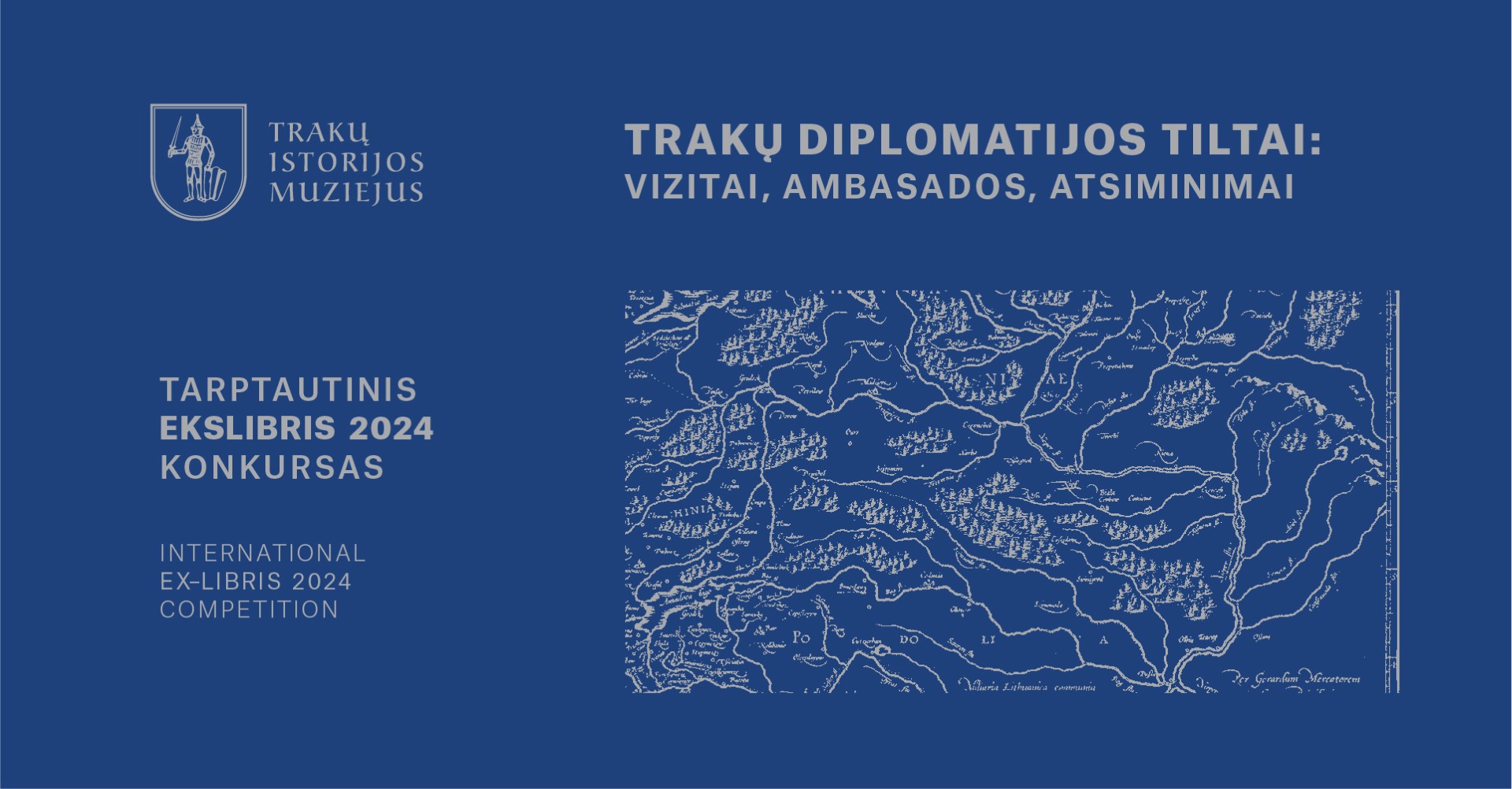 News, events
News, events

Diplomatija – tai kelias, vedantis per sudėtingus tarptautinių santykių labirintus, kur kiekvienas žodis, gestas ir sprendimas gali turėti gilią reikšmę. Diplomato rankose slypi galia kurti tiltus tarp tautų, puoselėti taiką ir harmoniją, kurti sąjungas ir partnerystes.
Nepaprastai džiaugiamės ir skubame pranešti, kad šiemet kasmetiniame, Trakų istorijos muziejaus rengiamame eklibrisų konkurse, tema „Trakų diplomatijos tiltai: vizitai, ambasados, atsiminimai“ ryžosi dalyvauti 44 profesionalūs dailininkai iš 12 valstybių, sukūrę 70 darbų bei 127 keturių valstybių vaikų ir jaunimo atstovai, konkursui pateikę 151 ekslibrisą.
Nuoširdžiai sveikiname visus konkurso dalyvius. Jūsų kūriniai išryškino diplomatijos meno savitumą, o kūrybingai perteikti vizitai ir ambasados tapo gyvais simboliais, jungiančiais praeitį su dabartimi. Šie darbai – ne tik atminimas, bet ir tiltas, per kurį ateities kartos galės pažinti Trakų krašto istoriją nauju kampu.
Dėkojame, kad savo talentu prisidedate prie kultūros ir meno sklaidos, o nugalėtojams linkime, kad ši pergalė taptų tik dar vienu žingsniu kūrybinėje kelionėje, kupinoje naujų idėjų, pasiekimų ir įkvėpimo!
Medieval diplomatic communication was different from modern diplomacy, fragmented rather than continuous. A fixed system of delegations and a permanent body of resident ambassadors - the basic elements of modern diplomacy - only emerged at the end of the fifteenth century, when many of the Italian city-states set up their first permanent foreign missions. In that era, city diplomacy, citizen diplomacy, monarchical diplomacy and state diplomacy emerged. Both now and in past epochs, diplomacy initially rejects the state as the main actor in diplomacy: diplomacy is carried out by individuals, not faceless metonyms. Decisions at the highest levels of government are ultimately taken by individuals with their own personalities, experiences and agendas, operating within a given political and cultural context. One of the main features of medieval diplomacy was the wide range of diplomatic actors, similar to the various non-state actors who continue to engage in diplomatic relations today. Rulers, knights and patricians, missionaries, pilgrims and nuncios, diplomats, scribes and craftsmen, monks, intellectuals and scientists, merchants, monks and cadets, artists, musicians or politicians in transit and getting to know Lithuania themselves. All those who left their imprints on our history and brought back impressions recorded in diaries and correspondence, who wrote the first prototypes of "travel guides", recorded their impressions in donors' reports, wrote their own memoirs, or who recorded in memoirs their impressions that had already become somewhat crystallized, were creating a global image for the whole country and for the town of Trakai. The images captured by cartographers and artists, and subsequent photographs and video footage that followed, are comprehensive, coherent and virtually unquestionable sources of content. Trakai city has played a significant role in maintaining both economic and political relations with foreign countries. The city is associated with the reign of Grand Duke Vytautas of Lithuania like no other - in the early 15th century, Trakai was a thriving city, with a large number of merchants, distinguished guests and foreign envoys visiting Trakai and being received in the Representative Hall of the Castle Dukes’ Palace. We invite you to take part in this competition as part of a diplomatic mission: your works turned into an exhibition, as a colorful travel guide will present the attractive, diverse, non-boring face of the hospitable city. The international nature of the competition helps to build new bridges of Trakai diplomacy, and the contestants will become the ambassadors who represent Trakai to the world as a unique place of new discoveries, a magnificent historical past, a place that lives in the present and is committed to the future.
Professional artists as well as children and youngsters from 4 until 19 are welcome to participate in the Competition.
We kindly ask
We kindly ask participants from non-European countries to send their works until 20 September 2024,
and participants from European countries - until 30 September 2024.
Please find the Terms of Competition attached. The information on the Competition and the Registration Form are available here:
PROFESSIONAL ARTISTS
1. TERMS OF COMPETITION (.PDF)
CHILDREN AND YOUNGSTERS
2. TERMS OF COMPETITION (.PDF)
PROJECT COORDINATOR
Eglė Gineikė
El. p. egle.gineike@trakaimuziejus.lt
Tel. Nr. +370 528 55297